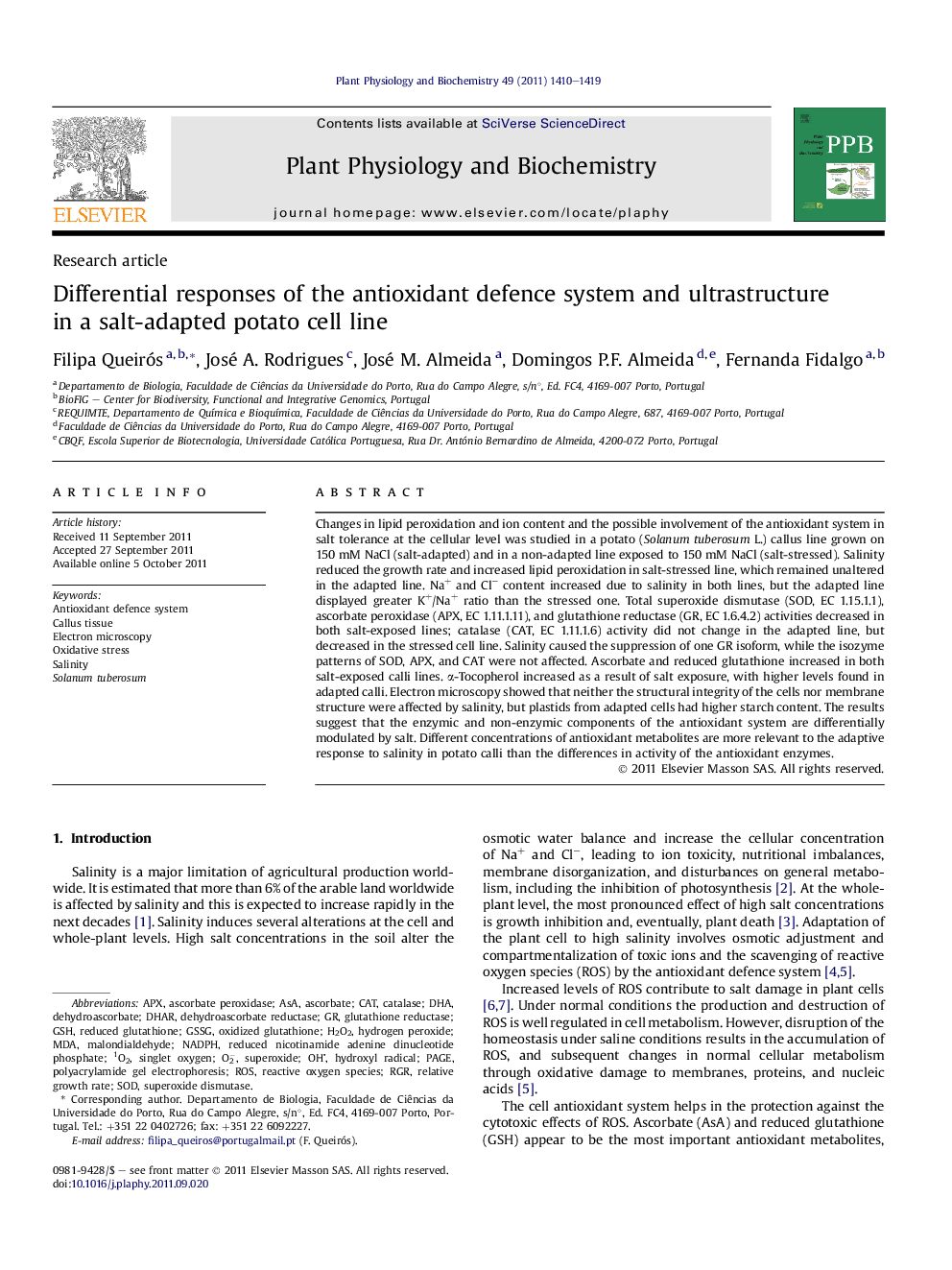| Article ID | Journal | Published Year | Pages | File Type |
|---|---|---|---|---|
| 2016374 | Plant Physiology and Biochemistry | 2011 | 10 Pages |
Changes in lipid peroxidation and ion content and the possible involvement of the antioxidant system in salt tolerance at the cellular level was studied in a potato (Solanum tuberosum L.) callus line grown on 150 mM NaCl (salt-adapted) and in a non-adapted line exposed to 150 mM NaCl (salt-stressed). Salinity reduced the growth rate and increased lipid peroxidation in salt-stressed line, which remained unaltered in the adapted line. Na+ and Cl− content increased due to salinity in both lines, but the adapted line displayed greater K+/Na+ ratio than the stressed one. Total superoxide dismutase (SOD, EC 1.15.1.1), ascorbate peroxidase (APX, EC 1.11.1.11), and glutathione reductase (GR, EC 1.6.4.2) activities decreased in both salt-exposed lines; catalase (CAT, EC 1.11.1.6) activity did not change in the adapted line, but decreased in the stressed cell line. Salinity caused the suppression of one GR isoform, while the isozyme patterns of SOD, APX, and CAT were not affected. Ascorbate and reduced glutathione increased in both salt-exposed calli lines. α-Tocopherol increased as a result of salt exposure, with higher levels found in adapted calli. Electron microscopy showed that neither the structural integrity of the cells nor membrane structure were affected by salinity, but plastids from adapted cells had higher starch content. The results suggest that the enzymic and non-enzymic components of the antioxidant system are differentially modulated by salt. Different concentrations of antioxidant metabolites are more relevant to the adaptive response to salinity in potato calli than the differences in activity of the antioxidant enzymes.
► Salinity negatively affected the activity of antioxidant enzymes in potato calli. ► Salinity increased the contents of antioxidant compounds and proline. ► Lipid peroxidation increased in salt-shocked calli, but not in the adapted cells. ► The structural integrity of the salt-grown cells was not affected. ► The increase in starch and antioxidant compounds may be related to salt tolerance.
